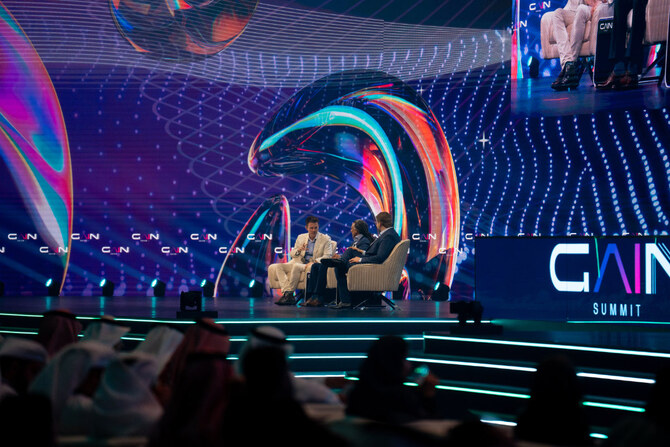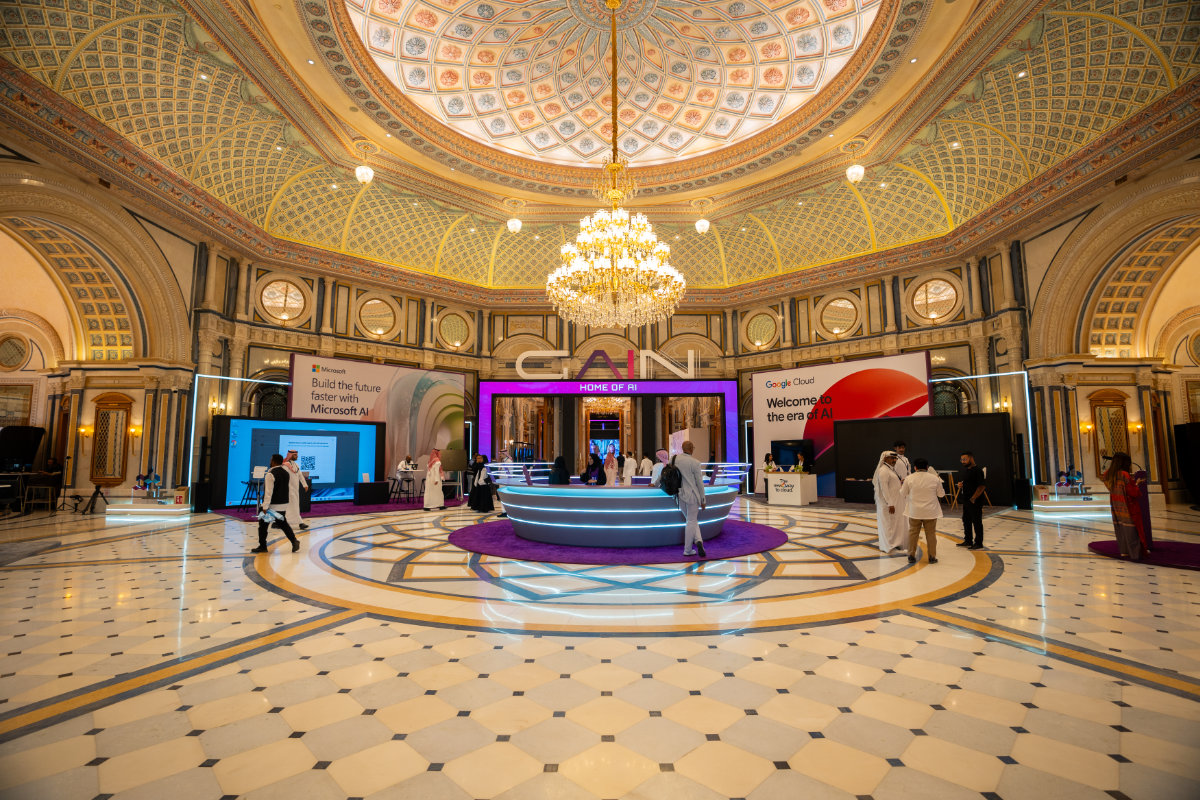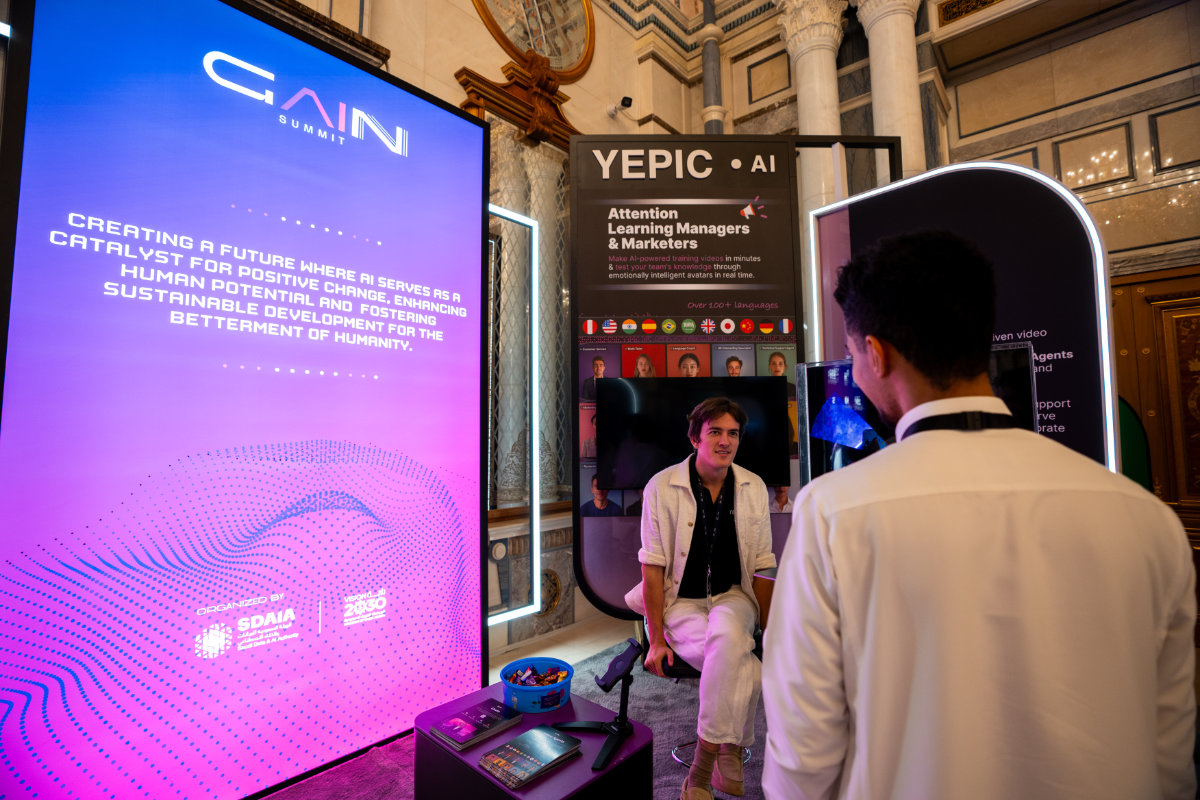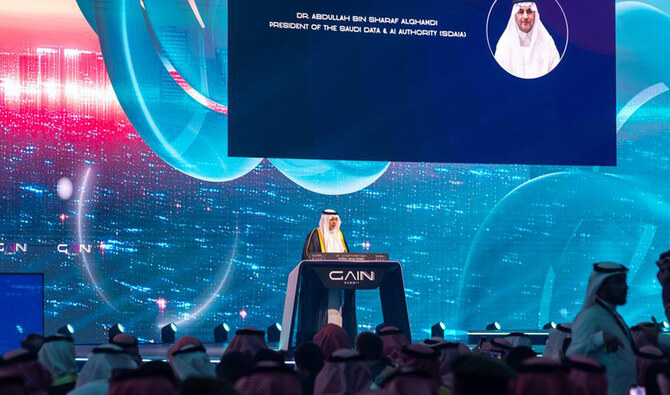ISLAMABAD: Pakistani information technology (IT) professionals, who participated in the Global Artificial Intelligence (AI) summit in Riyadh this week, have urged local IT firms to seize opportunities in Saudi Arabia through joint ventures, highlighting a significant potential in smart city projects and the AI-driven healthcare sector in the Kingdom.
The third edition of the summit, which took place in Riyadh on September 10-12, covered important topics in the field of AI, including innovation and industry trends, to shape a brighter future and cultivate an enabling environment for technology experts.
Four distinguished Pakistani IT experts participated as thought leaders in this year’s summit, according to the Pakistani mission in Riyadh. It came at a time when Pakistan is making efforts to boost its exports, particularly in the field of IT, and attract foreign investment to cut its reliance on foreign debt to support its $350 billion economy.
“Pakistani companies have strong potential to collaborate through joint ventures in Saudi Arabia, particularly in AI-driven sectors like smart city projects and healthcare,” Tariq Khan, vice president of AI practice at Pakistan’s Visionet and Systems Group who contributed to a session, namely “Transforming Healthcare: AI’s Role in Strengthening Supply Chains,” at the summit, told Arab News over the phone from Riyadh.
“With expertise in electronics, Internet of things (IoT) and AI, Pakistan can contribute to the growing need for automation, especially as Saudi Arabia transitions its healthcare system to insurance-based models, which require extensive AI-powered documentation.”

Participants attend the Global AI Summit in Riyadh on September 12, 2024. (AN Photo by Abdulrahman Bin Shalhoub)
After participating in the summit, Khan said, he gained valuable insights into the real potential of AI in the Saudi market and identified opportunities for his organization, which uses AI for diagnostic planning, discovering new biomarkers and drug discovery in the US pharmaceutical industry.
He said his experience was “excellent” as the event was well-organized with a diverse audience, and a focus on addressing various business types and concerns related to AI.
“There were discussions on responsible AI, the role of humans in AI systems, and human-AI interaction,” Khan added.
Additionally, he said, specialized talks at the summit addressed the transformation of healthcare through AI, the importance of health equity and how regulatory bodies could facilitate smooth integration of AI in different countries.
Khan emphasized that Saudi Arabia had a “lot of potential” as the government was investing a lot in AI.
“They are making different bodies to influence AI development, foreign companies and government bodies are also encouraged to work on joint AI initiatives,” he said, adding the Kingdom would be one of the world’s leading AI and technology hubs in the near future.

Participants attend the Global AI Summit in Riyadh on September 12, 2024. (AN Photo by Abdulrahman Bin Shalhoub)
Muhammad Haziq, chief executive officer of Pakistani IT solutions provider Grayphite, shared his thoughts in a session, titled “Delivering on the Innovation Promise of Startups.”
He said the summit had given them a chance to represent Pakistan, enhance collaboration between regional businesses and find potential growth opportunities in a new market.
“The potential of Saudi Arabia in AI, especially the way they are investing in this area, is amazing and they have set a global stage for discussion on AI,” Haziq told Arab News.
Both brotherly Muslim countries have a “huge common ground,” according to Haziq. Pakistan has a vast untapped tech talent pool, while Saudi Arabia has access to a lot of global enterprises and funds.
“Collaboration between the two countries, both at private and public levels, can foster the growth mindset among them,” he said.
The Pakistani embassy in Riyadh said the summit brought together visionary experts, academics, corporate leaders and policymakers from around the world to collaboratively shape the future of AI for the benefit of humanity.
“This event provided an excellent opportunity for networking and further strengthening collaborations between Pakistan and the international AI community,” it added.

Visitors attend the Global AI Summit in Riyadh on September 12, 2024. (AN Photo by Abdulrahman Bin Shalhoub)


















